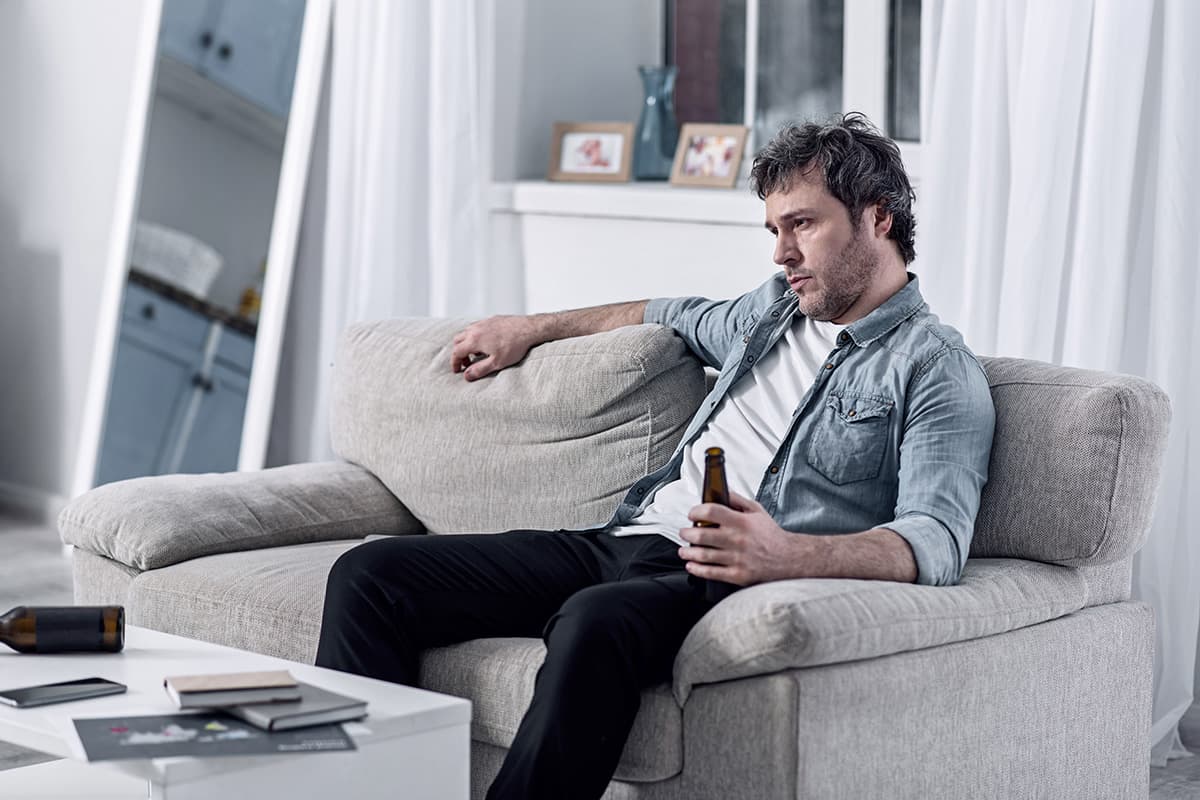It’s daunting to tackle a dual diagnosis, like depression and alcoholism. Depression can influence alcoholism negatively, and vice versa. The following article will examine the link between depression and alcoholism, and how you or a loved one can get help.
Dual Diagnosis
A dual diagnosis means diagnosing both a mental health problem and an addiction, such as depression and alcoholism, and recovering fully after a dual diagnosis is more complicated than other diagnoses. However, there is help available. Coping with mental health and substance abuse simultaneously is far from uncommon, but it can feel daunting without professional support.
Any set of co-occurring conditions can be challenging to manage, but with the right treatment and support, you or your loved one can make a full recovery. Many residential treatment programs can handle a dual diagnosis, and medical professionals are trained to help you or your loved one manage your situation.
Depression and Alcoholism
The link between depression and alcohol occurs in the brain. Alcohol affects the brain’s natural chemistry and increases the risk of depression. Excessive drinking can alter the brain’s neurotransmitters, which causes hormones like serotonin to fluctuate wildly. This will drastically affect mood. It gives you or your loved one false rewards due to the dopamine in your brain being impacted by alcohol.
Other factors connect depression to alcoholism, such as one condition causing the other, or both conditions making the other worse. This leads to a vicious cycle that can be challenging to break out of. Nevertheless, people recover from depression and addiction every day. Coping with both alcoholism and depression needn’t be hopeless.
If you are worried about your own or a loved one’s alcohol consumption, it is essential to seek help sooner rather than later. Alcoholism can lead to serious health problems, such as liver failure, and depression can lead to self-harm, suicide, or further drinking. Some of the signs you or your loved one may be drinking too much include:
- Regularly using alcohol to cope with problems
- Hiding the amount of alcohol consumed
- Starting to drink earlier in the day
- More frequent hangovers
- Feeling shaky or anxious the morning after drinking
- Feeling guilty or ashamed after drinking
The majority of people dealing with depression and alcoholism experience a reduction in depression-related symptoms after some time without drinking. Therefore the depression is related to alcohol use disorder or alcohol addiction. However, if there are still symptoms of depression, there are many ways to tackle it without using alcohol. For instance, depression can be treated using antidepressants, therapy, or a residential treatment program. Holistic therapies such as yoga have also been clinically proven to aid recovery from depression and alcoholism, and they can even improve physical symptoms of withdrawal.
Oceanfront Recovery Center
Oceanfront Recovery Center is just two blocks away from the serene waters of the Pacific ocean. We chose the location on purpose, to provide you or your loved one with a calming place to heal and move forwards.
We are well-equipped to handle a dual diagnosis and are experts in treating depression and alcoholism. Our facilities provide a safe and comfortable place to take the next steps towards recovery. Some of the treatment programs we offer include:
- Drug and alcohol detox center
- Dual diagnosis treatment
- Depression treatment program
- Anxiety treatment
- Alcohol addiction treatment
- Prescription drug addiction treatment
With up-to-date technology, friendly staff, and modern furnishings, Oceanfront Recovery Center is the perfect place to start your road towards recovery.
Oceanfront Recovery Center understands how difficult it is to discuss mental health and alcohol addiction, and we are here to help. If you or a loved one want to talk about depression and alcoholism, call us today at 877.296.7477.







